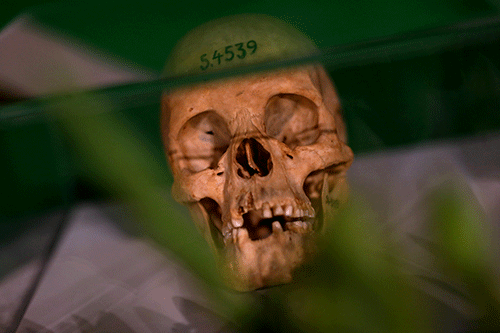Deodat Dirkse, the secretary general of the Nama Traditional Leaders Organisation (NTLA), has accused the Namibian government of not being alive to Germany’s attempts to recolonise Namibia through a green hydrogen deal.
The deal, Dirkse says, will once again only benefit Germany, as was the case during the dark colonial past.
“It [government] is sleeping and they think they can benefit privately but Germany is in the process of colonising Namibia again. Money from green hydrogen is still benefiting Germany,” he said.
The outspoken Dirkse said this during an interview with this paper, wherein he also delved into the genocide matter, which has seemingly reached a stalemate.
Dirkse added the seven regions identified to benefit from the development aid as part of the genocide joint declaration are those that are currently benefitting from green hydrogen.
The secretary general’s statements come hot on the heels of remarks made by President Hage Geingob on the genocide deal over the weekend.
Questioned on his take on genocide reparations, Geingob said there are diplomatic relations that exist between the two nations.
“As government, elected by the people, we represent our people. Now, all of a sudden, the demand is the affected communities must negotiate themselves. Sovereign states represent their people. I represent the Ovaherero and Nama people. I was elected. Whether they didn’t vote for me, I was elected,” he said.
He added: “We forced Germans, who were so reluctant to admit that there was a genocide. They were afraid to use the word genocide because they committed ‘other crimes somewhere else’ and if they are going to concede to us that there was a genocide, other doors will open up to demand the same”.
He said this during a lecture with students from various countries at the Paris Institute of Political Science in France over the weekend.
As things stand, Germany has only proffered projects worth 1.1 billion euros (N$18 billion) in seven identified regions as reparations for genocide.
However, Namibia, through its genocide negotiation team, approached Germany to relook the widely rejected tentative reparations agreement. Namibia’s initial N$1.1 trillion reparations demand remains unchanged.
The genocide agreement has been met with consternation, with most leaders from the affected communities bemoaning the lack of transparency from the government and, therefore, calling for the deal to be scrapped.
“The matter is currently in court for the deal to be declared null and void. The people who were with the government pulled out because the deal was not transparent. We must start on a clean sheet to negotiate because it should not be handled as a development aid issue,” said Dirkse.
The leader argued that the reparation matter is considered, wrongly so, by Germany as aid.
“What is more dangerous is that we are not tackling reparations as such. It was a systematic killing, people lost their land and properties, and it must be dealt with in the same way. We must have a legal framework. They have to go through that process where they legally recognise what happened – and through that framework, people who, for instance, lost their land through war need to change the original names from European names,” he explained.
OTA rejection
Meanwhile, one of the Ovaherero Traditional Authority (OTA) claimant chiefs, academic Mutjinde Katjiua maintained it has rejected the joint declaration in its totality.
“It is a denialism agreement of the two governments, aimed to further marginalise the Ovaherero and Nama peoples of Namibia, while gruesomely denying the existence of Ovaherero and Nama peoples in the diaspora,” the paramount chief said.
Katjiua continued: “We have taken the government of Namibia to court on the basis of the following unlawful actions. We have taken the Speaker of the National Assembly for unlawfully handling the JD debate in the National Assembly. The National Assembly was negligent and failed in its duty to enforce its decisions and guard against malpractice by the Executive. The president unlawfully deviated from the decision of the National Assembly and twisted the procedure for genocide reparation negotiations. The Attorney-General aided and abetted the Executive in the unlawful reparation negotiations”.
The other Ovaherero paramount chief claimant, academic Hoze Riruako could not provide a comment at the time of going to print.
Since the passing of the late Zedekia Ngavirue, who was Namibia’s special envoy on genocide talks, no appointment has been made to fill his void.
It is seen as unnecessary, as the current Namibian team of negotiators can face their German counterparts eye-ball-to-eyeball in the absence of an appointed envoy, Mbumba said last year when asked.


